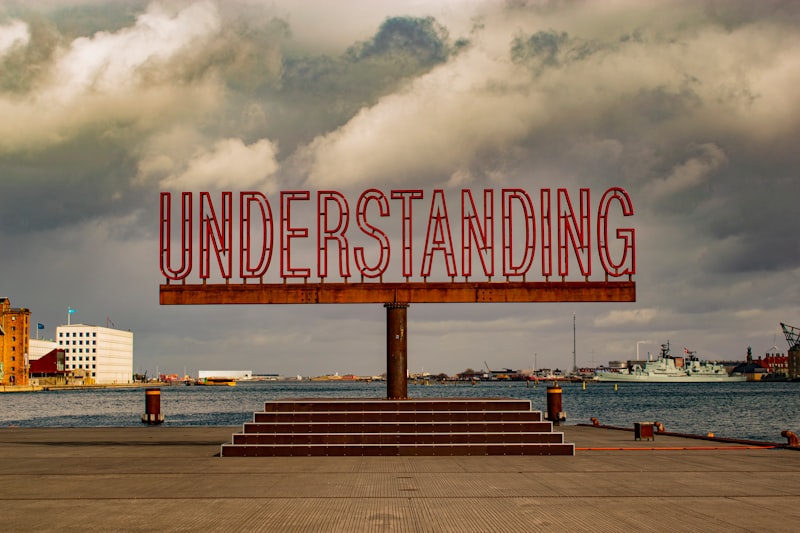- Dreams about bad friends can offer insight into underlying fears or insecurities.
- Common dream symbols such as falling, being chased or attacked, and losing teeth have specific meanings related to control, anxiety, and powerlessness.
- The emotional context of dreams, including sadness or grief, anger or frustration, confusion or overwhelm, and fear of the unknown, can provide valuable insights into subconscious thoughts and emotions.
- Encouraging self-reflection and offering support can help friends interpret and navigate the meaning of their bad dreams.
Dreams about friends that leave us feeling uneasy or confused can offer insight into our subconscious thoughts and emotions. Understanding the meaning behind these dreams is valuable. This article focuses on interpreting bad dreams about bad friends.
Understanding Dream Symbols

1. Symbolism of Falling
One common element in bad dreams is the sensation of falling. This can range from a slow descent to a sudden drop. Falling in a dream often represents a loss of control or instability in one’s life. It may indicate feelings of insecurity or a fear of failure. Additionally, falling dreams can symbolize a literal fall from grace or a loss of status or reputation.
To help your friend understand the symbolism of falling in their dream, encourage them to reflect on any areas of their life where they feel a lack of control or stability. Are they facing challenges at work or in their relationships? Are they afraid of taking risks or making mistakes? By exploring these aspects, your friend can gain insight into the underlying fears or insecurities that may have triggered the falling dream.
2. Symbolism of Being Chased or Attacked
Another frequent theme in bad dreams is being chased or attacked. This can take various forms, such as being pursued by an unknown assailant or being hunted by animals. The feeling of being chased often represents a sense of anxiety or pressure in one’s waking life. It may indicate that the dreamer is avoiding a situation or running away from their problems. This dream element may also be symbolic of someone or something in the dreamer’s life that they feel threatened by.
To help your friend interpret their dream symbol of being chased or attacked, encourage them to consider who or what is chasing them and how it relates to their waking life. Are they avoiding a difficult conversation or conflict? Do they feel threatened by a particular person or situation? By exploring these questions, your friend can gain a better understanding of the fears or anxieties that may be underlying their dream.
3. Symbolism of Losing Teeth
Losing teeth is another common element in bad dreams. In these dreams, the dreamer may feel their teeth crumbling, falling out, or being forcibly removed. This dream element often signifies feelings of powerlessness or a loss of control over a situation. Losing teeth can symbolize a fear of aging, a concern about one’s appearance, or a fear of losing one’s voice or ability to communicate effectively.
To help your friend interpret the symbolism of losing teeth in their dream, encourage them to reflect on any areas of their life where they feel a lack of control or powerlessness. Are they facing challenges that make them feel vulnerable or insecure? Do they have concerns about their physical appearance or aging process? By exploring these aspects, your friend can gain insight into the deeper fears or insecurities that may have triggered the dream.
4. Incorporating Symbolism into Dream Interpretation
When interpreting bad dreams, it is important to consider the broader context and symbolism within the dream. By analyzing the common elements and emotions present, we can gain a more accurate understanding of the dream’s meaning.
Incorporating tables and lists can be helpful when discussing dream symbols with your friend. For example:
| Dream Symbol | Possible Interpretation |
|---|---|
| Falling | Loss of control or instability; fear of failure |
| Being Chased | Avoidance; running away from problems or conflicts |
| Losing Teeth | Powerlessness; fear of aging or loss of communication |
Encourage your friend to reflect on their specific dream symbols and how they relate to their waking life. By exploring the emotions and experiences associated with each symbol, your friend can begin to gain clarity and insight into their own thoughts and feelings.
Emotional Context of Dreams

Dreams can often provide valuable insights into our subconscious thoughts, emotions, and inner struggles. When it comes to interpreting a friend’s bad dream, understanding the emotional context is key. By acknowledging and exploring the specific emotions present in the dream, we can gain a deeper understanding of the underlying issues they may be facing. Here, we will discuss the emotional context of dreams with sadness or grief, anger or frustration, confusion or overwhelm, and fear of the unknown.
1. Dreams with Sadness or Grief
Dreams that evoke feelings of sadness or grief may indicate that your friend is grappling with unresolved emotions surrounding loss or mourning. These dreams can be deeply personal and touching upon sensitive subjects. They may feature scenarios such as attending a funeral, experiencing a significant loss, or encountering symbols of grief in different settings.
In these dreams, the emotional context is one of deep sorrow and longing. Your friend may wake up feeling emotionally drained and contemplative. It is important to provide a supportive space for them to express their feelings and process their grief.
Encourage your friend to explore these emotions further and consider any connections between their waking life and the dream. Are there recent losses or significant changes that might be triggering these feelings? By delving into their emotions and reflecting on what these symbols may represent, your friend can gain insights into their grieving process and find solace in shared experiences.
2. Dreams with Anger or Frustration
When a friend experiences dreams filled with anger or frustration, it often signifies that they are grappling with unresolved conflicts or pent-up emotions in their waking life. These dreams may feature scenarios where they feel attacked, engaged in arguments, or facing challenges that result in feelings of helplessness or frustration.
The emotional context here is one of heightened tension and agitation. Your friend may wake up feeling unsettled and agitated by these intense emotions. It is essential to create a safe and non-judgmental space for them to express their feelings and navigate through these conflicts.
Encourage your friend to reflect on the underlying causes of their anger or frustration. Are there any unresolved conflicts or unexpressed emotions that may be triggering these dreams? By exploring their emotional responses and considering any connections to their waking life, your friend can gain insights into the sources of their anger and work towards resolution and healing.
3. Dreams with Confusion or Overwhelm
In dreams that evoke feelings of confusion or overwhelm, your friend may experience a sense of being lost or disoriented. These dreams often feature scenarios where they are unable to find their way, make decisions, or navigate through complex situations.
The emotional context in these dreams is one of uncertainty and helplessness. Your friend may wake up feeling mentally and emotionally drained, unsure of how to proceed in certain areas of their life. It is important to provide support and encouragement as they navigate through these overwhelming emotions.
Encourage your friend to seek clarity and take small steps towards understanding their emotions and goals. Practicing self-care, setting priorities, and seeking guidance can help alleviate feelings of confusion or overwhelm. By breaking down complex situations into manageable tasks, your friend can regain a sense of control and find clarity amidst the chaos.
4. Dreams with Fear of the Unknown
Dreams that evoke a fear of the unknown often feature scenarios or symbols that amplify feelings of anxiety, uncertainty, or insecurity. These dreams may involve unfamiliar places, strange creatures, or surreal and disorienting situations.
The emotional context here is one of heightened apprehension and unease. Your friend may wake up feeling unsettled by the uncertainty that lies ahead. It is important to provide reassurance and support as they navigate through these fears.
Encourage your friend to identify any specific areas in their waking life that may be triggering this fear of the unknown. Are there upcoming changes or transitions that are causing feelings of anxiety or apprehension? By exploring their emotions and working through their fears, your friend can gain a sense of empowerment and find ways to embrace the unknown with more confidence.
Possible Interpretations of Bad Dreams

1. Work or Career-Related Stress
- Feeling overwhelmed with work responsibilities and pressure
- Fear of failure or not meeting expectations
- Lack of satisfaction or fulfillment in current job
- Uncertainty about future career prospects
- Need for better work-life balance and self-care
2. Relationship Challenges
- Doubts about commitment or stability in a romantic relationship
- Unresolved conflicts or tension in personal relationships
- Insecurities or fear of rejection in relationships
- Need for better communication and understanding with others
- Desire for more intimacy and connection in relationships
3. Inner Personal Struggles
- Feelings of powerlessness or lack of control in life
- Self-doubt, low self-esteem, or insecurity about abilities
- Unresolved emotions or traumatic experiences
- Confusion or indecisiveness about personal direction or purpose
- Inner conflicts between different aspects of personality
4. Fear of the Unknown
- Anxiety and uncertainty about future outcomes or events
- Apprehension about stepping outside of comfort zone or taking risks
- Feeling lost or directionless in personal or professional life
- Fear of unexpected challenges or negative outcomes
- Need for clarity, guidance, and self-reflection
5. General Interpretations Tips
- Consider the emotional context
Explore the feelings and emotions experienced during the dream, such as sadness, anger, confusion, or fear. - Examine the specific details
Pay attention to the symbols and events in the dream to gain insights into their personal significance. - Reflect on waking life experiences
Connect the themes and elements in the dream to current challenges, stressors, relationships, or personal struggles. - Encourage self-reflection
Help your friend explore their own thoughts and emotions related to the dream and how it may relate to their waking life. - Offer support and empathy
Provide a safe space for your friend to discuss their dreams and validate their feelings and experiences.
Specific Interpretations: Dreaming About a Bad Friend

Dreams about a bad friend can be quite unsettling and leave you feeling perplexed and concerned for your friend’s well-being. These dreams often hold hidden meanings and serve as a window into your friend’s subconscious thoughts and emotions. By exploring specific interpretations of this dream, you can gain insights into their current struggles or concerns.
1. Indication of Prosperous Periods & Pleasure
Dreaming about a bad friend can be a reflection of prosperous periods and the anticipation of pleasure in your friend’s life. This dream suggests that your friend is experiencing a sense of abundance and contentment. They may have achieved certain goals or attained success in their personal or professional life.
This dream could also indicate that your friend is embracing a more positive mindset and attracting positive experiences into their life. They may be celebrating the end of old patterns or negative relationships and welcoming in a new beginning filled with joy, fulfillment, and exciting opportunities.
2. Acknowledging New Choices & Decisions
A dream about a bad friend can also symbolize your friend’s process of making new choices and decisions in their life. This dream is an indication that they are analyzing different aspects of their life and considering potential problems that could arise in the future.
It suggests that your friend is taking control of their circumstances and actively seeking positive changes. They are contemplating the unknown aspects of themselves and incorporating new traits, qualities, or perspectives into their character.
This dream encourages your friend to reflect on the choices they have made and the direction they are heading. It serves as a reminder to stay true to themselves, embrace personal growth, and navigate their life consciously.
3. Indications of Disloyalty & Betrayal
Dreaming about a bad friend may also symbolize issues related to loyalty and betrayal in your friend’s life. This dream serves as a warning sign that there may be people or situations around them that they can no longer trust.
Your friend may be feeling a sense of unease or suspicion about certain individuals in their life. This dream urges them to be cautious and discerning in their relationships, ensuring that they surround themselves with trustworthy and supportive people.
It is essential for your friend to listen to their instincts and intuition when it comes to navigating relationships. This dream encourages them to set healthy boundaries, spot potential signs of disloyalty, and make choices that honor their well-being.
4. Anticipation of Pleasant Surprises
Dreaming about a bad friend can also be an indication of exciting surprises or positive changes coming your friend’s way. This dream suggests that they may soon experience unexpected moments of joy, love, or success.
It serves as a reminder for your friend to stay open to new possibilities and embrace the beauty of life’s surprises. This dream encourages them to approach each day with curiosity, optimism, and a willingness to receive the blessings that may come their way.
Your friend can hold onto this dream as a source of hope and motivation during challenging times. It reminds them that even in difficult moments, there is always the potential for something wonderful to occur.
5. Reminder of the Importance of Honest Communication
Dreaming about a bad friend can also indicate the importance of honest communication in your friend’s relationships. This dream suggests that there may be unresolved issues or tensions between your friend and someone they consider a close friend.
It serves as a reminder for your friend to address these concerns openly and honestly. They should strive for open dialogue, active listening, and finding common ground with their friends. The dream encourages them to express their feelings, concerns, and needs in a respectful manner.
By addressing conflicts or misunderstandings, your friend can strengthen their friendships and foster deeper connections based on trust, understanding, and mutual support.
6. Prompts Self-Reflection & Personal Growth
Dreaming about a bad friend prompts your friend to engage in self-reflection and personal growth. This dream indicates that there may be some aspects of their own behavior or thought patterns that they need to evaluate and transform.
It encourages your friend to examine their own actions, traits, and beliefs, and make necessary adjustments for personal growth. This dream serves as a call to become more self-aware, introspective, and self-compassionate.
By exploring their dreamscape and reflecting on their experiences, your friend can gain valuable insights into themselves and unlock new potential for personal development. This dream reminds them that they have the power to transform their lives by consciously choosing thoughts, behaviors, and attitudes that align with their values and aspirations.
Dealing With Negative Dream Influences and Their Effects

Dreams have long been a topic of intrigue and fascination, with people seeking to unlock their hidden meanings and messages. One particular type of dream that can leave us feeling unsettled is a bad dream, especially when it involves a friend. These dreams often contain powerful symbolism that can provide insight into our subconscious thoughts and emotions. In this article, we will explore how to deal with negative dream influences and their effects, specifically focusing on a friend’s bad dream.
1. Confronting Overwhelming Circumstances
One common theme that can arise in a bad dream is the feeling of being overwhelmed by circumstances. This can manifest as scenarios where the dreamer is trapped or unable to escape, symbolizing a sense of powerlessness in their waking life. It is essential to confront these overwhelming circumstances head-on in order to regain control and find a sense of stability.
To help your friend deal with overwhelming circumstances, encourage them to take small, manageable steps towards resolving their issues. Breaking down the problem into smaller tasks can make it more manageable and less intimidating. Remind them that seeking support from others, whether it be friends, family, or professionals, can provide valuable guidance and assistance.
Creating a support network is key in overcoming overwhelming circumstances. Encourage your friend to lean on their loved ones for emotional support or seek professional help when necessary. Remind them that they don’t have to face these challenges alone.
2. Upholding Values Amidst Deceit
Another aspect that may arise from a friend’s bad dream is deceit or betrayal. These dreams can evoke feelings of distrust and uncertainty about the trustworthiness of others. It is important for your friend to uphold their values and maintain integrity in the face of deception.
Remind your friend that they have control over their own actions and can choose how to respond to deceit or betrayal. Encourage them to focus on their own behavior and not let the actions of others define their character. Emphasize the importance of staying true to their values and surrounding themselves with trustworthy individuals.
Building strong relationships based on trust and open communication can also help your friend navigate deceitful situations. Encourage them to address any concerns or conflicts directly with the individuals involved, promoting healthy and honest conversations. This can help clarify misunderstandings and pave the way for resolution and reconciliation.
3. Accepting and Adapting to Change
Change is inevitable in life, and bad dreams can sometimes reflect a fear of change or uncertainty about the future. These dreams may create a sense of unease or anxiety, making it difficult for your friend to embrace new opportunities or transitions. Accepting and adapting to change is crucial for personal growth and resilience.
Assist your friend in reframing their perspective on change by reminding them that it can bring about positive outcomes and opportunities for growth. Encourage them to focus on the potential benefits of change, such as personal development or new experiences.
Support your friend in developing coping mechanisms and strategies for managing change-related stress. This can include practicing mindfulness, engaging in self-care activities, and seeking out support from friends, family, or professionals. Remind them that change is a natural part of life and that they have the ability to adapt and thrive in new situations.
4. Nurturing Self-Reflection and Growth
Bad dreams often serve as triggers for self-reflection and personal growth. Encourage your friend to explore the underlying emotions and messages within their dream. Discussing their dream with a supportive friend like you can provide insights into their own thoughts, fears, and desires.
Promote self-reflection by asking open-ended questions about their dream. Encourage them to journal about their feelings, thoughts, and any patterns they notice in their dreams. This process can help uncover deeper meanings behind the bad dream and provide valuable insights for personal growth.
Engage your friend in discussions about their dream, focusing on potential lessons or areas for improvement. Encourage them to set goals based on these insights and create an action plan for growth. Remind them that their dreams provide an opportunity for self-awareness and can ultimately lead to positive change in their waking life.
Conclusion: Harnessing the Learning from Dreams
Remember that dreams are complex and can have multiple interpretations. Don’t be discouraged if you can’t immediately understand the meaning of your friend’s bad dream. It may take some time and reflection. However, offering a listening ear and words of support can go a long way in helping them process their emotions. Remind them that bad dreams are a normal part of the human experience and that it’s okay to feel upset or confused. Suggest journaling, therapy, or other forms of self-reflection if they feel compelled to dive deeper into their subconscious. While bad dreams can be unsettling, they can also offer opportunities for growth and self-discovery if approached with an open mind and heart.










Leave a Reply